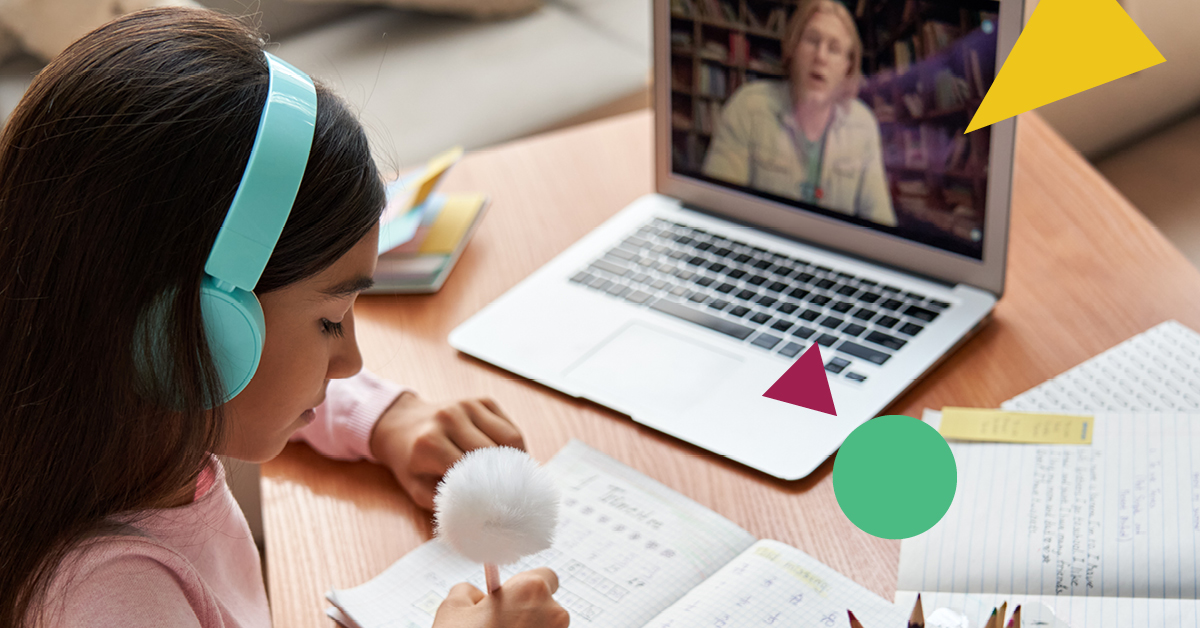
Energising and Enabling Educators to Foster Deep Learning
Article: Published September 30, 2021It is without doubt, that 2021 hasn’t been as we’d expected. Working from home has become normal. Learning on the job as become crucial. Remote learning has become standard. But it has taken a toll. A University of Melbourne study found that more than two-thirds of all teachers indicated that they worked more hours than usual every week, and half of all teachers overall working more than 6 hours extra each week with some teachers indicating that they were working more than an extra 20 hours per week – it’s no wonder teachers are exhausted.
It’s not all been bad. Despite the unpredictability of going in and out lockdowns, young people have demonstrated determination and resilience. A report by UNICEF found that at the end of 2020 people aged 13-17 years said their ability to cope had improved, with 65% saying their ability to cope was ‘good’ compared 45% of those surveyed in April 2020. Educators have worked incredibly hard, finding new ways of using technology to engage students in the curriculum and enable continuity of learning. One study into the experience of remote and flexible learning in Victoria found that remote learning enabled greater flexibility and the expansion of online learning allowing for more creative approaches and differentiated teaching to learning as meant some students (that are lucky enough to have access to technology and a conducive home environment), have thrived.
The experience of students has not been homogenous. For some, there has been opportunity for deep learning and continuity of engagement with the curriculum. The Grattan Institute found that while some schools offered ‘live’ virtual classes and collaborative learning activities, others were given worksheets and had very little synchronous learning experiences. The Commission for Children and Young People found that many students felt support during remote learning was limited, having a devasting impact particularly on those most vulnerable. With the majority of the research on blended learning focused on University student cohorts, knowing what success looks like in K-12 education is unclear and is bound to produce inconsistencies.
Without a systematic pedagogical approach, there is a very real concern that opportunities for deep learning for all students can’t be guaranteed. With the very likely possibility of stints of remote learning well into 2022 – how can we energise and equip educators to foster deep learning regardless of the setting?
Practical resources for deep learning
The shift to remote learning has meant that schools made dramatic changes to move curriculum online. The Department and Education and Training Victoria found that teachers highlighted the time spent doing this work and the difficulties in knowing which instructional resources are most effective. We know that teachers need practical support and guidance, particularly with how to structure inquiry teaching approaches online, how to capture evidence of critical thinking and collaboration through assessment and how to provide feedback to learners about their progress. By providing practical examples of what this looks like, particularly in remote learning will ensure educators confidence in their ability to foster deep learning, regardless of the setting.
Empowering self-efficacy in teachers
Teacher efficacy is a form of self-efficacy and is a powerful predictor of teaching performance because affects confidence to teach and reach all students. Research has shown that self-efficacious teachers foster student growth in deeper learning, employing student-centred strategies through inquiry, collaboration and enabling student agency through promoting rich peer discussion and negotiation. Central to developing self-efficacy is collaborating on matters of learning and teaching, developing mastery and feeling a sense of accomplishment. One thing is clear, school systems invest in the continuous development of their teachers and provide platforms for collaboration to empower self-efficacy in teachers.

New ways of engaging in Professional Learning
Research suggests that about half of the teachers felt supported with Professional Learning in transition to remote learning. Although, this largely focussed on technology skills and facilitation skills required to deliver online. The pedagogy that underpins that delivery has largely not been the focus of Professional Learning, with many feeling too overwhelmed to consider pedagogies promoting deep learning. Online courses and micro-credentials for educators present a unique opportunity to link professional learning to teacher practice. Through each course and credential, educators demonstrate application of their learning and receive feedback about their performance. Some education systems are seeing the value of embedding micro-credentials in existing professional learning pathways to promote educator agency and celebrate educators developing their practice. By schools and teachers promoting continuous learning, means that young people can thrive.
The ability of education leaders, teachers and students to adapt has been awe inspiring. Now let’s shape what deep learning looks in 2022 and beyond.

Sign up for the FREE online course here

